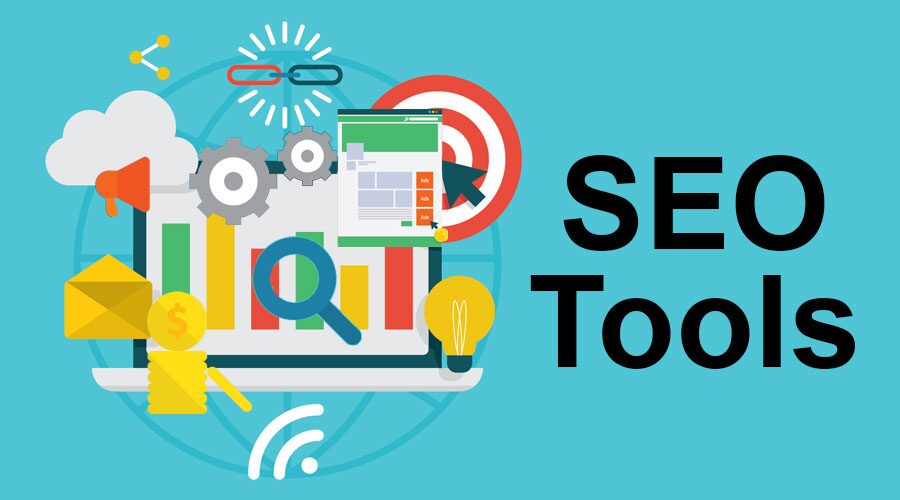Starting your SEO journey can feel overwhelming. But the right tools make all the difference!
If you’re new to SEO, using beginner-friendly tools can simplify complex tasks like keyword research, site audits, and tracking rankings.
In this blog, we’ll explore the best SEO tools for beginners, explaining why they’re essential and how they can boost your online visibility.
Why SEO Tools Are Important for Beginners
SEO isn’t just about stuffing keywords into articles.
It’s about optimizing your entire website to perform better in search engines.
SEO tools help beginners by:
-
Identifying the right keywords
-
Analyzing competitors
-
Finding technical issues
-
Tracking website performance
-
Improving content quality
Instead of guessing what works, SEO tools provide data-driven insights that lead to faster growth.
Top 10 Best SEO Tools for Beginners
Here’s a curated list of SEO tools that are easy to use yet powerful enough to get real results.
1. Google Search Console
One of the first tools every beginner should use.
Google Search Console helps monitor your website’s presence in Google search results.
It shows you:
-
Which keywords are driving traffic
-
Your site’s indexing status
-
Crawl errors and security issues
And the best part? It’s completely free.
2. Google Analytics
Though it’s primarily a web analytics tool, Google Analytics provides vital SEO data:
-
Where your traffic is coming from
-
How users behave on your site
-
Which pages perform best
Pairing it with Search Console gives you a full view of your SEO performance.
3. Yoast SEO (for WordPress Users)
If you have a WordPress website, Yoast SEO is a must-have plugin.
It simplifies on-page SEO by offering real-time tips:
-
Optimizes title tags and meta descriptions
-
Checks readability
-
Helps with internal linking suggestions
Even if you’re just getting started, Yoast will make sure you cover SEO basics properly.
4. Ubersuggest
Created by Neil Patel, Ubersuggest is one of the most beginner-friendly SEO tools.
With it, you can:
-
Find keyword ideas
-
Analyze competitors
-
Audit your website
-
Discover backlink opportunities
Its simple dashboard makes learning SEO less intimidating.
5. SEMRush
Although SEMRush is a premium tool, it offers a free trial and limited free features ideal for beginners.
You can:
-
Do comprehensive keyword research
-
Track your rankings
-
Perform technical audits
-
Spy on competitors’ SEO strategies
The learning curve is gentle, and the tool offers tons of tutorials.
6. Ahrefs Webmaster Tools
While Ahrefs is often considered advanced, their free Webmaster Tools are perfect for beginners.
You get:
-
Website audits
-
Backlink analysis
-
Keyword insights
It’s a great introduction to professional-grade SEO analysis.
7. Answer the Public
Creating content that answers people’s real questions is an SEO goldmine.
Answer the Public generates a list of commonly asked questions based on your keywords.
Perfect for brainstorming blog topics and building content that ranks.
8. MozBar
MozBar is a free Chrome extension that shows SEO metrics instantly as you browse websites.
It offers:
-
Domain Authority (DA) scores
-
Page Authority (PA) scores
-
On-page element highlights
It’s a simple way to understand the SEO strength of any page you visit.
9. Screaming Frog SEO Spider
For technical SEO beginners, Screaming Frog offers a free version that crawls your website and highlights issues like:
-
Broken links
-
Redirect chains
-
Missing meta descriptions
Fixing these technical glitches can significantly boost your rankings.
10. Keyword Surfer
Another free Chrome extension, Keyword Surfer, shows:
-
Search volume estimates
-
Related keyword ideas
-
Content length of top-ranking pages
Great for beginners who want quick keyword data without using complicated software.
Tips for Choosing the Best SEO Tools for Beginners
-
Start with Free Versions: Most premium tools offer free trials or limited free versions.
-
Prioritize User-Friendly Interfaces: You shouldn’t need a course to understand the dashboard.
-
Focus on Key Features: In the beginning, keyword research, site audits, and rank tracking are most important.
Final Thoughts: Find What Works for You
Everyone’s SEO journey is different.
Some tools work better depending on your website goals, industry, and learning style.
Start with a few of these beginner-friendly tools, master them, and gradually explore more advanced features.
Remember: SEO success comes from consistency, learning, and adapting.
With these best SEO tools for beginners, you’re already off to a great start!
FAQs About SEO Tools for Beginners
Q1: Are free SEO tools enough for beginners?
Absolutely. Free tools like Google Search Console, Ubersuggest, and Yoast SEO are great for building foundational skills.
Q2: How many SEO tools should I use?
Start with 2–3 tools covering different aspects (like keyword research, technical SEO, and analytics) and expand as needed.
Q3: Do SEO tools guarantee higher rankings?
No. SEO tools provide valuable data and insights, but success still depends on how well you implement strategies based on the data.





